This Startup’s Bio-Digester Helps 5000 Families Give up LPG, Saves 6 Million Trees
Sistema Bio, a biogas company has helped 5,000 farmers from Maharashtra, Gujarat and Karnataka to switch to a reliable and clean source of fuel
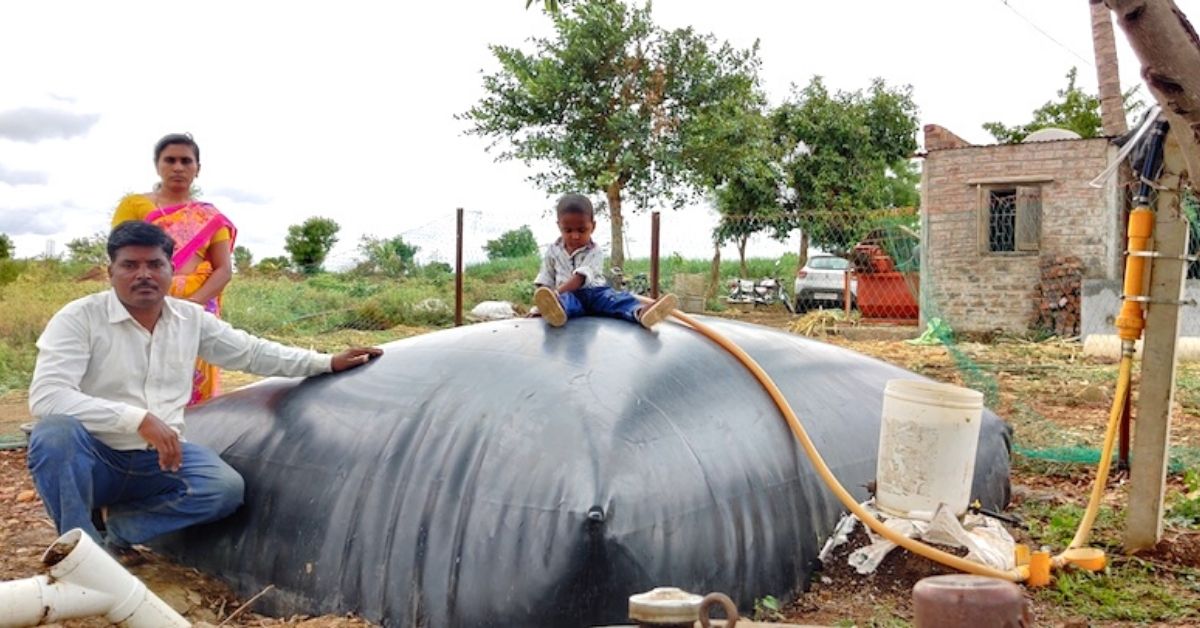
A large, black, bloated plastic-like bag spreads in the backyard of Kedar Khilare, a farmer from Phaltan, a village about 100 km away from Pune in Maharashtra.
Upon a closer look, the bag seems to be filled with air, with pipes connected to one end that lead straight into the kitchen. Occasionally children in the family are seen jumping and playing over it.
“It is a biogas plant,” Kedar explains. Thanks to the system, Kedar says that he has stopped buying LPG cylinders for his family for almost two years now.
“I have a family of eight, and we used to require about two cooking gas cylinders a month costing around Rs 1500 a month. I could not afford the expenses,” Kedar says.
However, Sistema Bio, a company headquartered in Pune selling innovative biodigesters, conducted a demonstration camp in the village and showed its benefits in 2018.
Convinced by the product, Kedar installed the biogas plant in January 2018 and is reaping the full benefit.
Efficient and convenient biogas
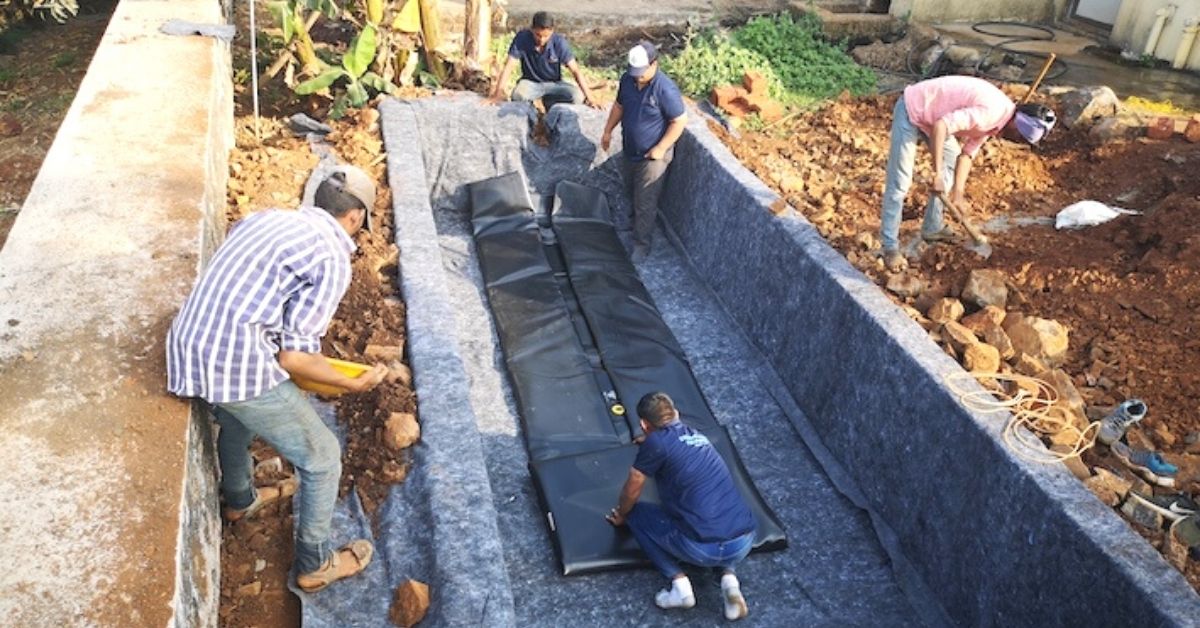
“I am saving about Rs 15,000 a year and using a clean source of energy. I tried the traditional biogas plants made from plastic and metal. They eventually crack due to the acidic content or end up rusting,” Kedar said.
Kedar adds that the bio-digester has not disappointed him and is much more efficient than expected.
“Even during cold weather conditions, the biodigester gives enough gas for the cooking needs of the family,” he said.
Like Kedar, there are about 5,000 farmers in Gujarat, Maharashtra and Karnataka using these biodigesters.
Biogas is generated by a digestion process from anaerobic bacteria. Cow dung gets added to an airtight tank or pit and then mixed with water. After about a month of natural reactions, methane gas is generated along with other gases like Sulphur. The gas is then ready to be used for cooking or heating purposes.
The remains after the anaerobic reaction is called slurry and can be used as high-quality manure.
Piyush Sohani, a manager of the Sistema Bio company, explains, “These biodigesters are made from an industrial geo-membrane, with a lifespan stretching up to 20 years.”
Piyush said Sistema Bio provides smallholding dairy farmers with anaerobic digestion technology, along with other services and financing to allow them to increase their agricultural productivity.
“The effort helps improve the environmental sustainability of the farms – keeping a focus on clean energy and sustainable agricultural inputs,” he adds.
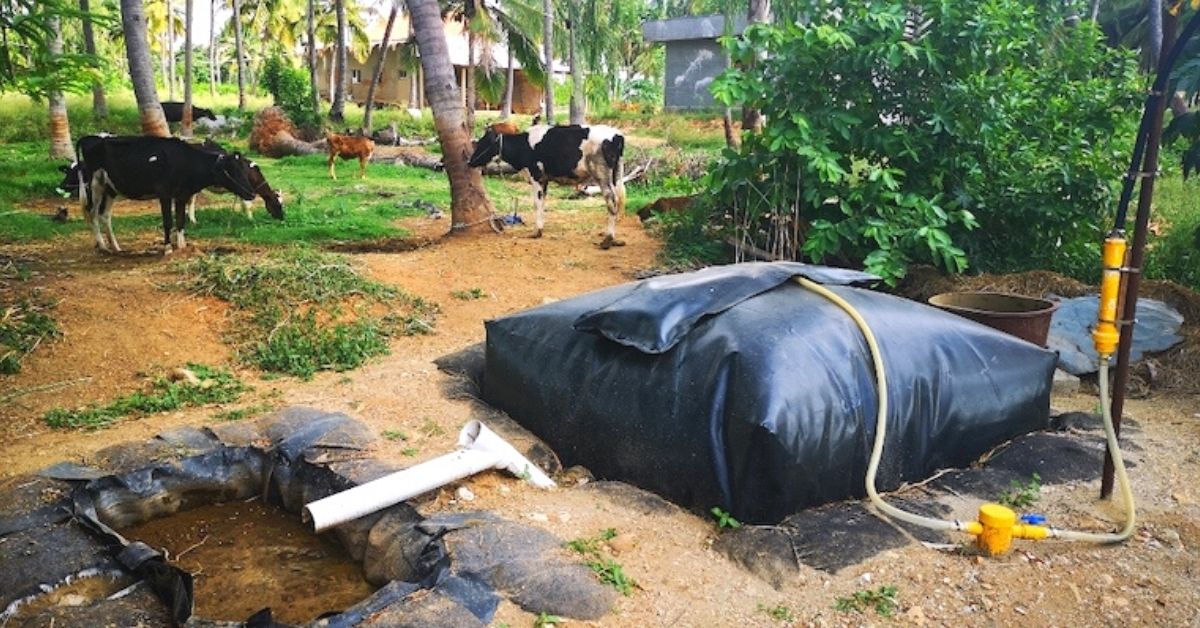
Speaking further, Piyush explains that the pre-fabricated biodigesters allow farmers to reduce their dependence on firewood or fossil fuels – which are very polluting.
“Cooking with biogas is fast and smokeless and this improves health, especially among women and children. The by-product of the process is bio-slurry which improves crop yields. Having more vegetables to sell provides families with extra income,” Piyush told The Better India.
“The system design allows the installation of the plant in a few hours. These plants require no maintenance as the slurry gets pushed out by an in-built mechanism. Usually, the slurry generated gets pumped out through external force. But, here, the system pushes it automatically,” he adds.
Piyush said the system is designed to work in different temperature zones. “It can get installed for a family with two cows, and can be scaled up for larger dairy farms. Its immense mobility allows it to reach remote rural households,” he adds. For example, the bio-digester can process smaller quantities (like 45 kg) and go up to two tons of animal waste every day.
“The bio-digester is not a fixed asset unless the farmer wants it. It can be removed, shifted to a better location and carried making it highly portable,” he adds.
Innovations to overcome shortages
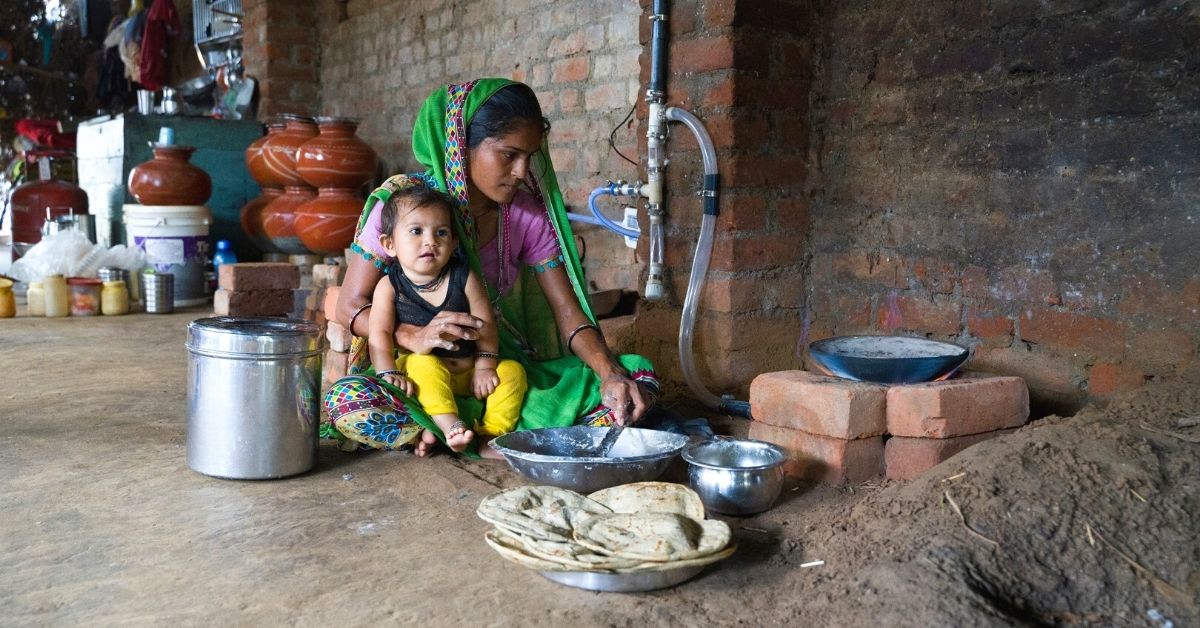
“There are multiple innovative features in the bio-digester, starting with the fact that the bio-digester works at low pressure, against the high pressure gas generation a conventional system demands,” Piyush informed.
The bio-digester, as factory-made, is leakproof. “The geo-membrane allows the system to be airtight which a concrete or plastic tank cannot guarantee.” he adds.
The bio-digester has a one-inch pipe for gas flow, allowing least resistance for channelising the gas. “Trapping points are installed, to avoid choking or the accumulation of water due to the moisture formed in the pipe. This allows farmers to clear the water easily,” he adds.
Though the bio-digester costs around Rs 40,000, Piyush claims “the cost is recovered in 18 months after installation and the remaining 10-15 years is free of cost,”
Tons of carbon emissions mitigation
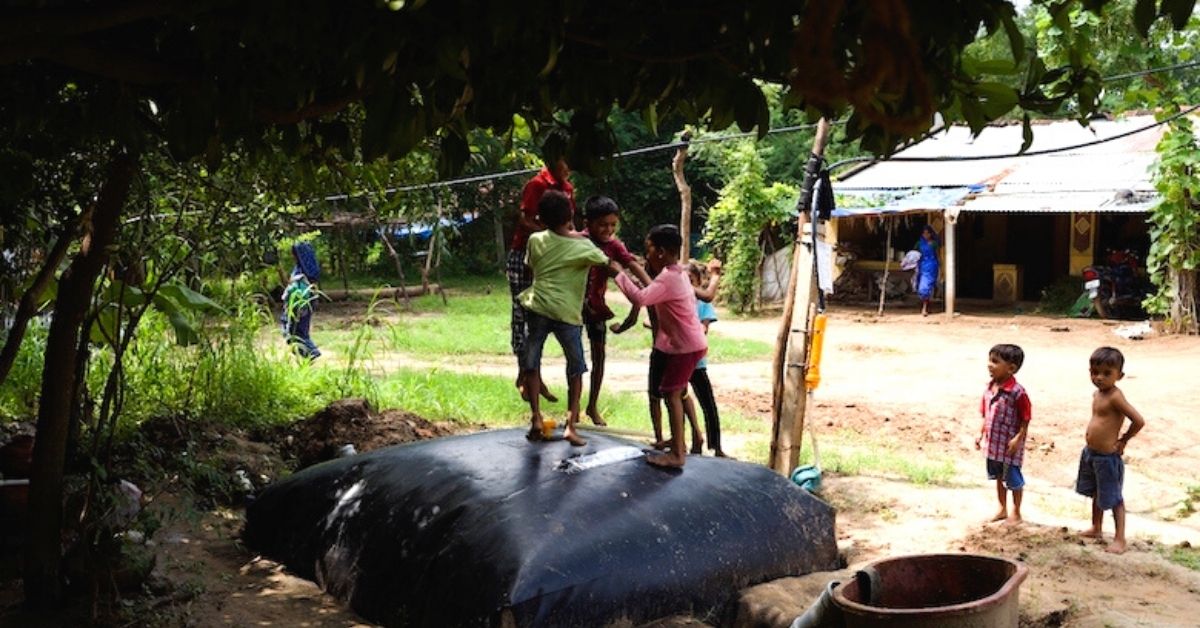
Piyush says 5, 000 families across the country are benefited directly by the system and have collectively made a big impact on the environment.
Since its inception in 2018, the Sistema Bio has provided clean cooking gas to 25,000 people in rural India.
“With this initiative so far, 60,000 tons of CO2 is saved. Roughly five lakh tons of waste gets treated, 72 lakh cubic meter of gas is generated, and six lakh trees saved. Additionally, 23,450 hectares of agricultural land is fertilised with bio-fertiliser generated from these systems,” Piyush decoded.
The company is also operational in Kenya, Mexico and Columbia.
“Over the last decade of operating in other countries, the global impact is such that about three million trees got saved from getting chopped. The carbon emissions caused by the use of firewood or other fossil fuels for cooking, has been mitigated by over two lakh tons,” Piyush adds.
The calculations are done according to the norms laid by the United Nations Framework for Climate Change (UNFCC).
“We calculated the amount of firewood required by each household or gas cylinder used before installing the bio-digester system. The amount of biogas produced per cubic metre and worked the mathematics accordingly,” Piyush said.
Piyush says the use of biogas is expected to increase by 40 per cent by 2040. “The increase in the animal population, crop production and equivalent waste generated, along with ever-increasing energy demands, such methods could be effective in solving the issues,” he added.
With around 550 million cattle generating five million tonnes of cattle dung daily, the company wants to reach 50,000 families in the next three years.
(Edited by Vinayak Hegde)
If you found our stories insightful, informative, or even just enjoyable, we invite you to consider making a voluntary payment to support the work we do at The Better India. Your contribution helps us continue producing quality content that educates, inspires, and drives positive change.
Choose one of the payment options below for your contribution-
By paying for the stories you value, you directly contribute to sustaining our efforts focused on making a difference in the world. Together, let’s ensure that impactful stories continue to be told and shared, enriching lives and communities alike.
Thank you for your support. Here are some frequently asked questions you might find helpful to know why you are contributing?


This story made me
-
97
-
121
-
89
-
167











